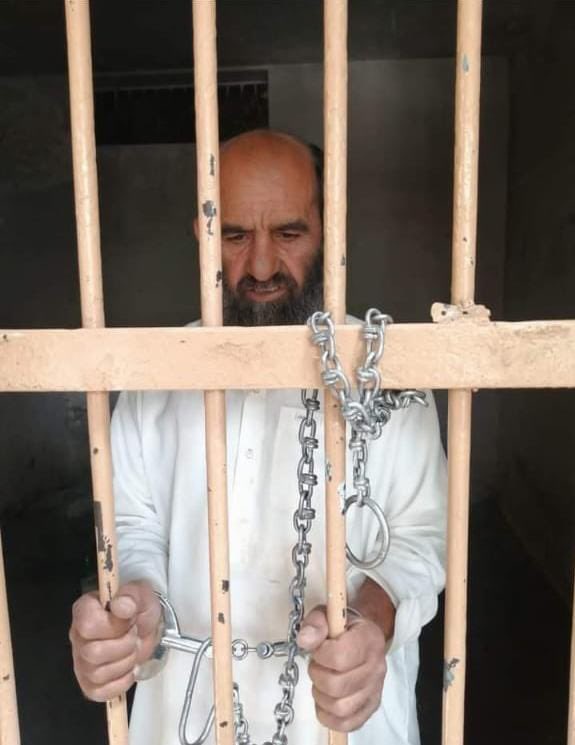Quetta: Muslim in custody on blasphemy charges killed by policeman
The death of Abdul Ali once again highlights the growth of extremism even in government institutions. The owner of a small hotel was killed amid pressure from Islamists. For Yousaf Benjamin, executive director of Dignity First-Pakistan, “This incident raises questions [. . .] about police officers.”
Quetta (AsiaNews) – A middle-aged Muslim man, Abdul Ali, owner of a small Sakhi Hotel was killed yesterday by a policeman, after he was taken into custody a couple of days ago on charges of blasphemy, at the Cantonment police station in Quetta.
According to available information, Abdul Ali, a resident of Kharotabad, made questionable comments about the Khatm-i-Nabuwwat,[*] as well as on the Prophet Muhammad. His alleged phone conversation went viral on social media, sparking sharp criticism and protests in the city.
This is yet another case of violence due to Pakistan's blasphemy laws that never go to trial, and are often used against minority groups.
After a furious mob demanded action against the accused, police arrested him under Article 295c and 34 of the Pakistan Penal Code, and filed a First Information Report (FIR).
Police eventually managed to disperse the crowd, after negotiating with the leaders of the Tehreek-i-Labbaik Pakistan (TLP), a far-rightist Islamist movement.
Later, an angry crowd from religious parties, including Tehreek-i-Labbaik Pakistan, gathered in front of the Kharotabad police station, where the suspect was initially detained, demanding the police hand over the prisoner, throwing stones and grenades at the police station.
According to information posted on social media, Abdul Ali was a practising Muslim: one of his two sons is a Hafiz-e-Quran[†] while the other is a cleric.
The policeman who killed the prisoner is called Syed Khan Sarhadi. The murder took place in the police station. Abdul Ali was pronounced dead at the scene, his body riddled with bullets.
“Once again, a sad incident happened in Quetta Pakistan. A person was killed in the name of alleged blasphemy charges,” said social media writer Aamir Kakkazai, speaking to AsiaNews. “This time, the sad part is the killer was an on-duty policeman and the person killed was under his custody.”
This underscores the special nature of the case: a murder carried out by someone who was supposed to uphold the law, the member of an institution that often stands by when angry mobs engage in violence.
“This reminds us of the death of Salman Taseer, a governor of Punjab, who was killed by his own security guard,” Kakkazai added. “One sad part is that all religious parties and leaders are showing solidarity with the killer (police constable), claiming that he has now become a Ghazi[‡] like Mumtaz Qadri, the killer of Salman Taseer.”
“Misuse of blasphemy laws and extrajudicial killing of a citizen are condemnable,” notes Yousaf Benjamin, executive director of Dignity First. “For decades, human rights defenders have been urging the authorities to counter the religious extremism; however, no steps HAVE BEEN taken in this regard, which has now resulted in frequent abuses of the blasphemy laws.”
The killing of three people over a four-month period is evidence of government inaction.
“This incident raises questions on the training and mental growth of police officials. We have seen a number of policemen take the law into their hands and kill the victims. There is a lot to be done in this regard, e.g. deleting hate material from the textbooks and educating and training law enforcement groups.”
For Jamshed Iqbal, an educationist and writer, “Syed Khan Sarhadi is an ugly and hypocritical face, an ugly face that does not give does not look at the mistakes of a person as an excuse, but looks at the excuse and kills a person.
“Usually, I do not get disappointed but I do when I see Pakistan badly sick with extremism and it has no cure for it. Now, anyone who tries to cure this disease will be killed by this disease.”
Questioning this kind of violence tends to hit a wall of inflexibility.
Ultimately, Iqbal notes that, “You can cure a person when he thinks that he is ill, but, when a patient thinks that his illness is righteousness, then what could a doctor do for him? Believe me, this country can get out of economic crises but it cannot get rid of extremism and fundamentalism.”
[*] The finality of Muhammad’s prophethood.
[†] Someone who has memorised the Qur‘an.
[‡] A Muslim warrior wounded in battle.
11/10/2017 13:58







.png)










